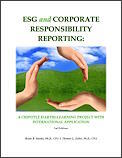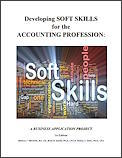
ESG and Corporate Responsibility Reporting:
A CHIPOTLE E(ARTH)-LEARNING PROJECT with International Application – 1st Edition
 Chipotle is a widely recognized international company with a commitment to ESG and corporate responsibility.
Chipotle provides bi-annual sustainability reports along with bi-annual update reports. Its long-term
success
provides an excellent foundation to learn about the breadth of ESG and corporate responsibility.
Chipotle is a widely recognized international company with a commitment to ESG and corporate responsibility.
Chipotle provides bi-annual sustainability reports along with bi-annual update reports. Its long-term
success
provides an excellent foundation to learn about the breadth of ESG and corporate responsibility.
We designed this project to make learning about ESG and corporate responsibility a fun and rewarding experience. By completing this project, students learn how to gather and evaluate information to better understand company sustainability initiatives and their related results. Students learn about sustainability and corporate responsibility through real world applications.
To begin, students watch a variety of YouTube videos, visit various websites, and answer general questions about ESG and corporate responsibility. Next, they are exposed to global standard setting organizations, reporting standards, ESG scores and ESG indices. Finally, students review Chipotle’s most current ESG report. All of this is accomplished while answering questions along the way. The project closes with the student’s written evaluation of Chipotle’s ESG corporate responsibility efforts and outcomes.
Developing Soft Skills for the Accounting Profession:
A Business Application Project – 1st Edition
 Though hard skills show employers a student’s level of experience and technical abilities, soft skills
indicate a student’s ability to work well with others and grow within a company. Soft skills help students
build relationships and solve problems so they can make positive contributions to a team or company. Listing
soft skills on a student’s resume, demonstrating them in an interview and developing them in the workplace
can help students find new opportunities and advance their career.
Though hard skills show employers a student’s level of experience and technical abilities, soft skills
indicate a student’s ability to work well with others and grow within a company. Soft skills help students
build relationships and solve problems so they can make positive contributions to a team or company. Listing
soft skills on a student’s resume, demonstrating them in an interview and developing them in the workplace
can help students find new opportunities and advance their career.
In this project students learn about, and then practice soft skills. To begin, students answer general questions about hard skills vs. soft skills and the most crucial soft skills necessary for professional success. Next, students practice these soft skills in various business settings.
The project closes with a student-prepared written definition of soft skills importance to a career in accounting (and all workplace functions) as well as a ‘lessons learned’ evaluation.
Introduction to the Corporate Annual Report:
SEC Form 10-K – 6th Edition
 This workbook makes the study of accounting and financial analysis an enjoyable and rewarding learning
experience. Students learn accounting and
financial analysis by systematically gathering financial and nonfinancial information to answer questions
and make business decisions. The corporate
annual report is the primary document used to drive the learning process. Students access Security &
Exchange Commission (SEC) Form 10-K in this
effort. We built this edition of the workbook around SEC Form 10-K because our research shows that most
companies use the 10-K to comply with annual
reporting requirements and the information is readily available.
This workbook makes the study of accounting and financial analysis an enjoyable and rewarding learning
experience. Students learn accounting and
financial analysis by systematically gathering financial and nonfinancial information to answer questions
and make business decisions. The corporate
annual report is the primary document used to drive the learning process. Students access Security &
Exchange Commission (SEC) Form 10-K in this
effort. We built this edition of the workbook around SEC Form 10-K because our research shows that most
companies use the 10-K to comply with annual
reporting requirements and the information is readily available.
Accounting terms and concepts are defined and illustrated as needed to support the student’s decision-making needs throughout the workbook. The work is active and driven by the student’s need to answer questions as they relate to his or her inquiry. Upon completing this project, a student understands how to use widely available accounting and related information to systematically answer business questions.
Illustrative questions are:
- Would I like to work for this company?
- Should I use this company as a supplier?
- Is this company a solid investment, preliminary analysis?
This project is suitable for undergraduate and graduate students in accounting and finance courses. The learning activities stimulate a cross-functional, integrated application of business tools. Workbook tasks illustrate why and how accounting is the language of business. Students are required to access and use the corporate annual report (Securities and Exchange Commission (SEC) Form 10-K) and the company website in the evaluation of their selected company.
The learning experiences are active, and student driven. Accessing and interpreting information to arrive at a sound business decision drives the accounting and financial analysis learning process. NEW to this edition is students can use a downloaded Excel template where ratios are computed off cell referenced financial statement values.
